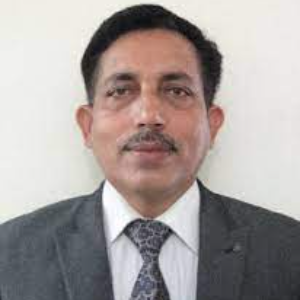Title : Balanced use of plant nutrients for food security
Abstract:
The ever-increasing population and shrinking natural resource base have posed a major challenge for agriculture across the globe to ensure food security while adopting sustainable and efficient agriculture. Nutrient management plays a pivotal role in sustaining crop productivity. Balanced fertilization is the key to enhancing nutrient use efficiency for sustainable food production. Balanced fertilization entails not only the application of a certain proportion of N, P, and K (or other nutrients) in the form of fertilizers but also the integrated application of organic manures and synthetic fertilizers to the soil. Integrated use of fertilizers and organics leads to improved soil health, while imbalanced fertilization to soil degradation and nutrient mining. Soil acidity has been recognized as a major production constraint worldwide that adversely affects agricultural production directly or indirectly. Long-term fertilizer studies provide an ideal base to evaluate the impact of different nutrient management strategies on soil health, crop productivity and sustainability. A long-term fertilizer experiment is ongoing in the northwest Himalayas since 1972-73 to see how balanced fertilization versus imbalanced fertilization affects the productivity of maize and wheat and soil health. For integrated use of chemical fertilizers (100% recommended dose of NPK) and farmyard manure, the average yield for 49 years, was 4860 and 3075 kg/ha for maize and wheat, respectively. The application of lime has proved equally effective in enhancing the productivity of maize and wheat. The yield under 100 percent NPK + lime was 4264 and 2842 kg/ha, respectively. Continuous cropping for the last five decades with nitrogen fertilizer alone reduced grain yields of both crops to zero after 22 crop cycles. Balanced application of nutrients recorded a higher sustainable yield index (SYI) as compared to imbalanced fertilization. The application of nitrogen and phosphorus without sulfur and potassium resulted in a substantial reduction of grain yields of maize and wheat. Nutrient uptake was also positively influenced by integrated use of fertilizers and farmyard manure as well as lime. The use of nitrogenous fertilizer alone aggravated the problem of soil acidity by decreasing the soil pH from 5.8 to 4.4 after five decades. Omission of potassium and sulfur also reduced the available amounts of these nutrients in the soil. Carbon sequestration was higher under balanced use of nutrients as compared to imbalanced fertilization. The findings clearly demonstrated that imbalanced fertilization poses a threat to the sustainability of the agricultural production system and the maintenance of soil health. In order to attain food security, the use of chemical fertilizers in a balanced manner is vitally necessary for sustaining maize and wheat productivity. Amelioration of soil acidity through lime is a beneficial proposition to boost crop productivity in acid soil regions. Balanced and judicious use of fertilizers is necessary for increasing nutrient use efficiency and securing a higher yield of crops in a sustainable manner.



